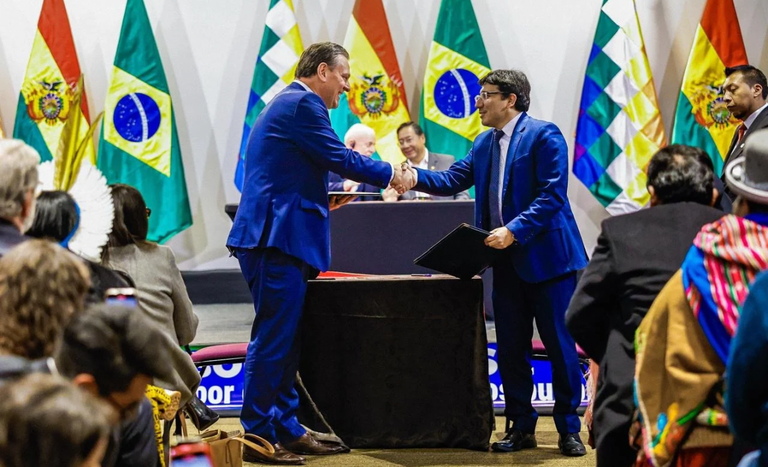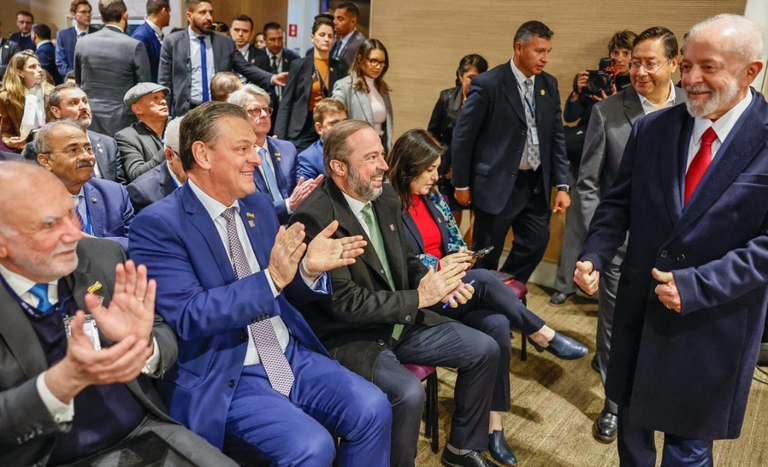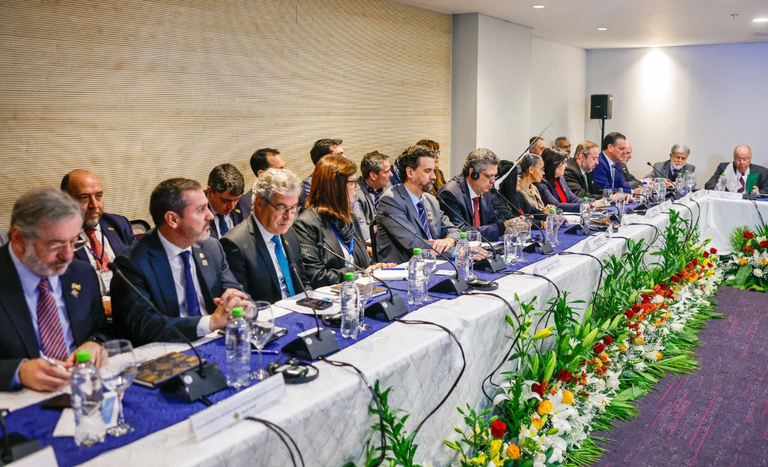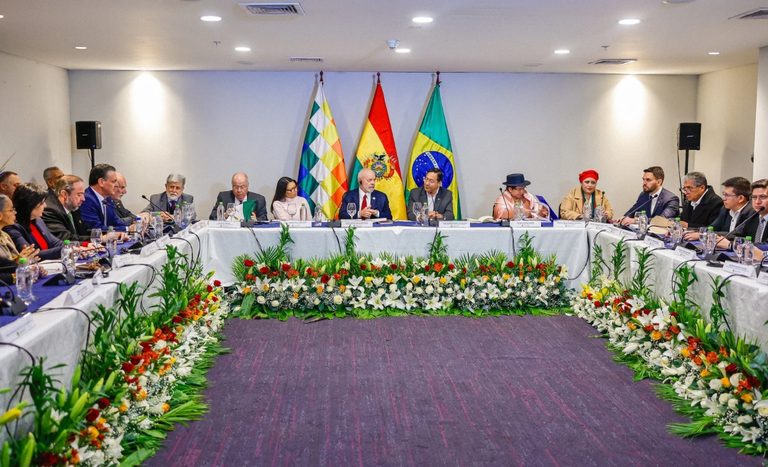Notícias
FOREIGN RELATIONS
In Bolivia, minister Fávaro signs agreements to increase fertilizer supply for Brazilian agriculture
On Tuesday, 9th, the Minister of Agriculture and Livestock, Carlos Fávaro, signed two agreements with Bolivia to increase the supply of fertilizers in Brazil. This initiative aims to boost Brazilian agricultural productivity and enhance the sector's competitiveness. The signings occurred during a bilateral meeting between President Luiz Inácio Lula da Silva and Bolivian President Luis Arce in Santa Cruz de la Sierra.
The first document is a cooperation agreement for the commercial sale of fertilizers and sodium chloride, signed with Bolivia's Minister of Hydrocarbons and Energy, Franklin Molina Ortiz. The second is a memorandum of understanding for the export of fertilizers to Brazil, signed with the Minister of Rural Development and Lands, Santos Condori.
These agreements aim to establish terms and conditions for exporting fertilizers and their raw materials to Brazil, focusing on strengthening the local agricultural sector. The agreements also promote and implement technical and scientific cooperation through technological exchange, research, development, and innovation between the parties.
“Increasing the supply of fertilizers in the country is essential for the development of Brazilian agriculture. It brings more competitiveness to the sector and, as a result, strengthens food security. The increase in fertilizer production will be crucial for boosting food productivity in the country,” emphasized Minister Fávaro.
Minister Fávaro also highlighted that President Lula is committed to seeking opportunities for Brazilian entrepreneurs and the population. “We found a very favorable environment thanks to the president’s Lula good international relations. We have already accessed 155 new markets to commercialize national products,” he explained.
ABOUT THE MISSION
On the same day, President Luiz Inácio Lula da Silva and Bolivian President Luis Arce held a bilateral meeting followed by an expanded meeting with authorities from both countries in Santa Cruz de la Sierra. During the meeting, they discussed progress in strategic areas such as agriculture, energy, and infrastructure, as well as joint actions for environmental protection and energy transition.
Lula highlighted the cooperation between Brazil and Bolivia in industrial policy for the exploration and manufacturing of lithium and stressed the importance of joint development between the two countries, particularly in strengthening commercial cooperation in fertilizer production.
“What we have done here aims to improve the quality of life for the people of Bolivia and Brazil. That is why we are signing these documents. It is because it is necessary to give Brazil, Bolivia, and other South American countries a chance in the 21st century to stop being treated as developing countries or third-world countries,” emphasized the Brazilian President.
TRADE RELATIONS
In 2023, Brazil exported approximately USD 1.84 billion to Bolivia. The main exported products were iron bars, various food preparations, and automobiles. In agribusiness, exports averaged around USD 350 million over the past five years, mainly beverages, forestry products, and animal feed.
Regarding imports, Brazil imported approximately USD 1.61 billion from Bolivia, with highlights including natural gas, nitrogen fertilizers, and borax.
In terms of fertilizers, Brazil primarily imports urea and potassium chloride from Bolivia, averaging USD 59 million and USD 9.5 million, respectively, over the past three years.
AGENDA
Minister Carlos Fávaro also participated in a meeting with the Brazilian Minister of Planning and Budget, Simone Tebet, and the Minister of Public Works, Services, and Housing of the Plurinational State of Bolivia, Edgar Montano Rojas, to discuss infrastructure projects in Brazil and Bolivia to facilitate South American logistical integration. The focus was on the Quadrante Rondon route, aimed at encouraging and strengthening trade, as well as reducing the time and cost of transporting goods.
Press information
imprensa@agro.gov.br




